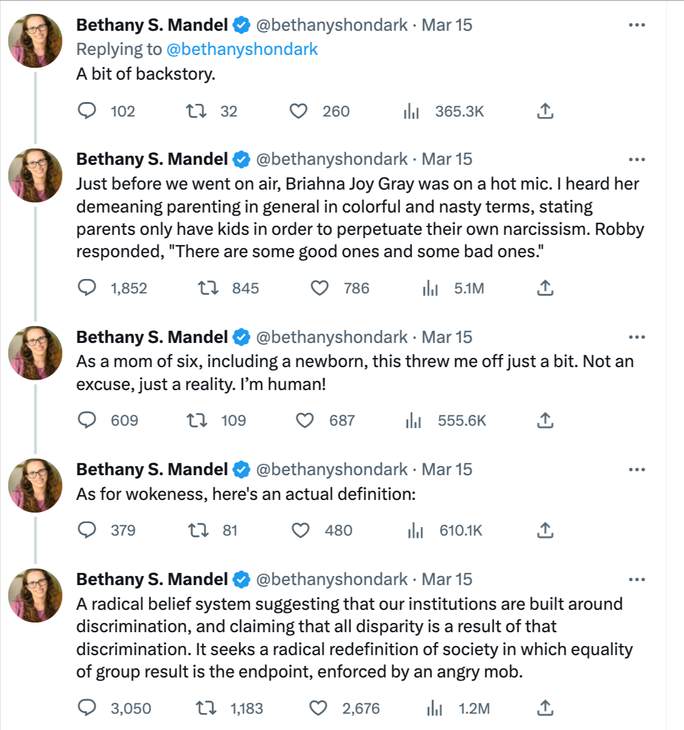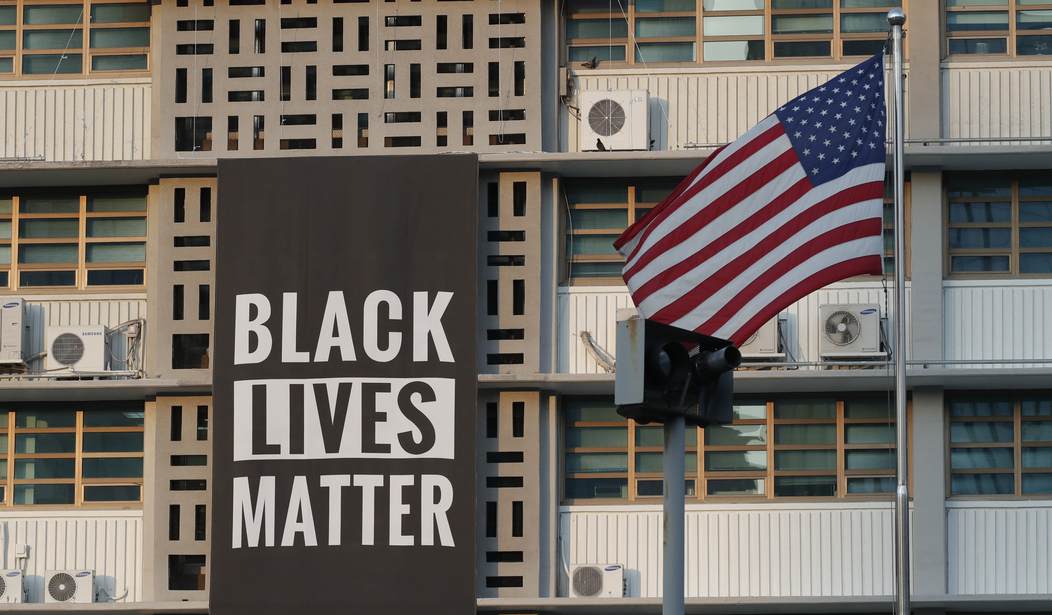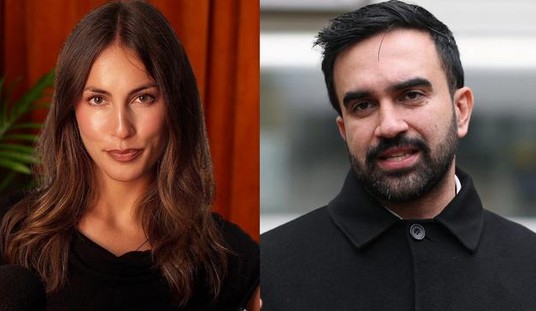Author Bethany Mandel wrote a book about wokeism and its harmful impacts on children. Asked on “Rising” what her definition of the term was, she struggled to offer a succinct answer.
So, everybody's seen my viral brain fart from "Rising" this morning. I can see why it went viral, of course. For those who haven't, here it is: https://t.co/4rgFBy9SGB
— Bethany S. Mandel (@bethanyshondark) March 15, 2023
In her defense, the rest of the interview was interesting, and she presents her ideas well. The viral moment may have just been one of those tongue-tied instances we all have. She explained it this way:

Arguably the most overused adjective in modern discourse, the term “woke” is amorphous and imprecise. As the Social Justice™ people say, it’s “problematic.”
Really understanding what “woke” means, assuming it still retains any meaning at all, requires some background knowledge of ultra-“progressive” academia, which itself generally requires at least some personal, firsthand interaction with the American education system, particularly postgraduate academia.
Wokeism is a logical outgrowth of postmodernism, in which there is no objective reality. It’s what happens when a lack of belief in objective reality meets identity-based grievance politics.
Here is how I would define the term:
Woke ideology asserts that the story of human history is best explained by an eternal struggle between the oppressor and the oppressed. Categories in this dichotomy are delineated along essentialist and immutable categories of identity, such as race, religion, sex, or sexual orientation. People, irrespective of their individual life experiences, are assigned to oppressor or oppressed categories depending on an amalgamation of these characteristics, forming a hierarchy of victimhood.
At the bottom of the oppression totem pole is the straight, Christian, “cisgender” white man — the ultimate demon responsible for all the world’s ills.
At the top of the oppression totem pole, the pecking order is less clear and constantly evolving. Racial minorities, particularly BIPOC (black and indigenous Persons of Color™, are near the top. Women, who ironically birthed the Social Justice™ ideology, have been supplanted in recent years by the transes. Sorting through the various identities to come up with one’s precise oppression index, so to speak, is difficult because there are no objective criteria — again, partially because comparing victimhood status across identities is difficult but also because the promulgators of this ideology reject objective analysis out of hand.
In the final analysis, though, the use of the term “woke” may have run its course. Attempting to establish a universally accepted definition at this late date, given how it’s already saturated the culture with wildly differing interpretations of what it means, may be a fool’s errand.










Join the conversation as a VIP Member